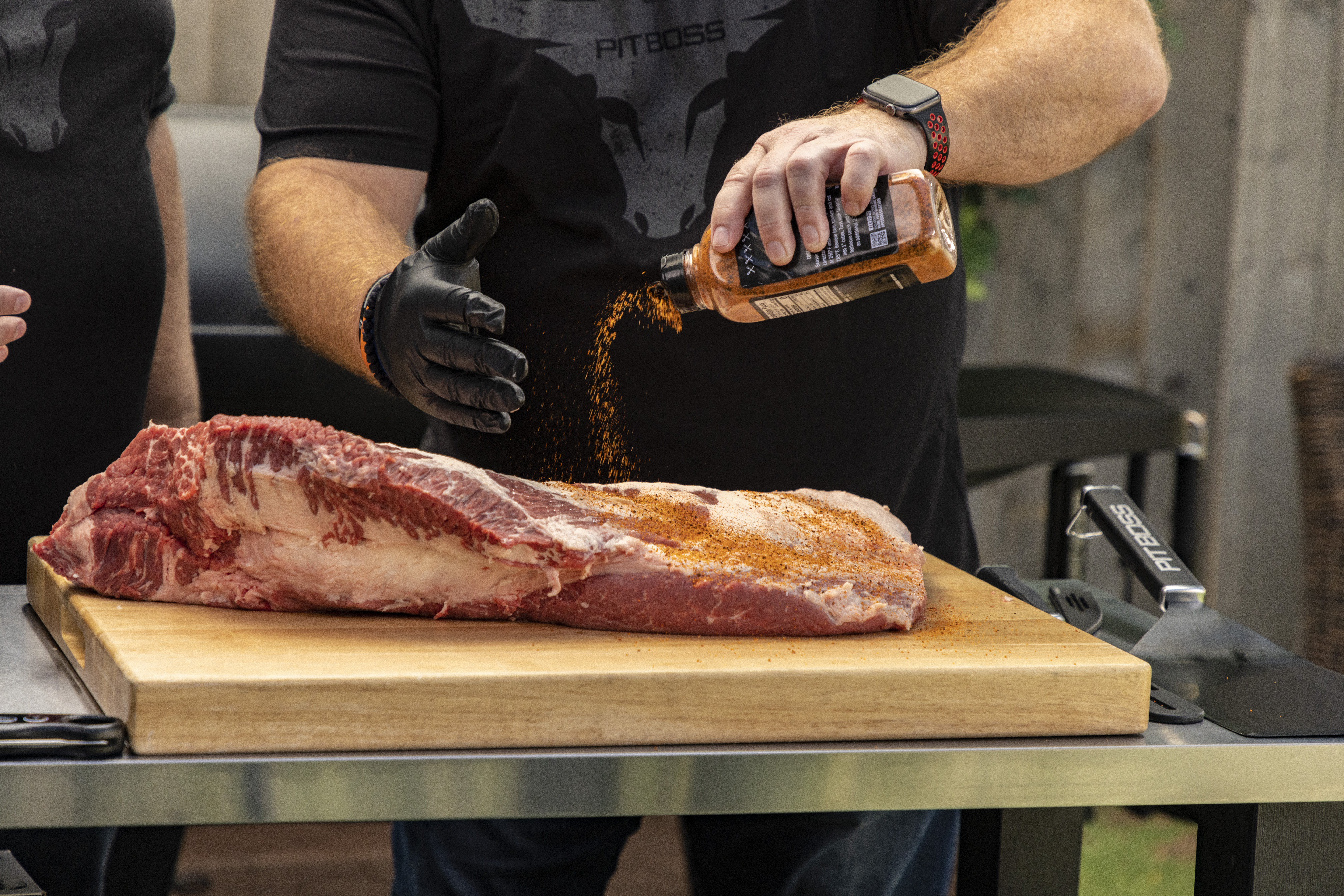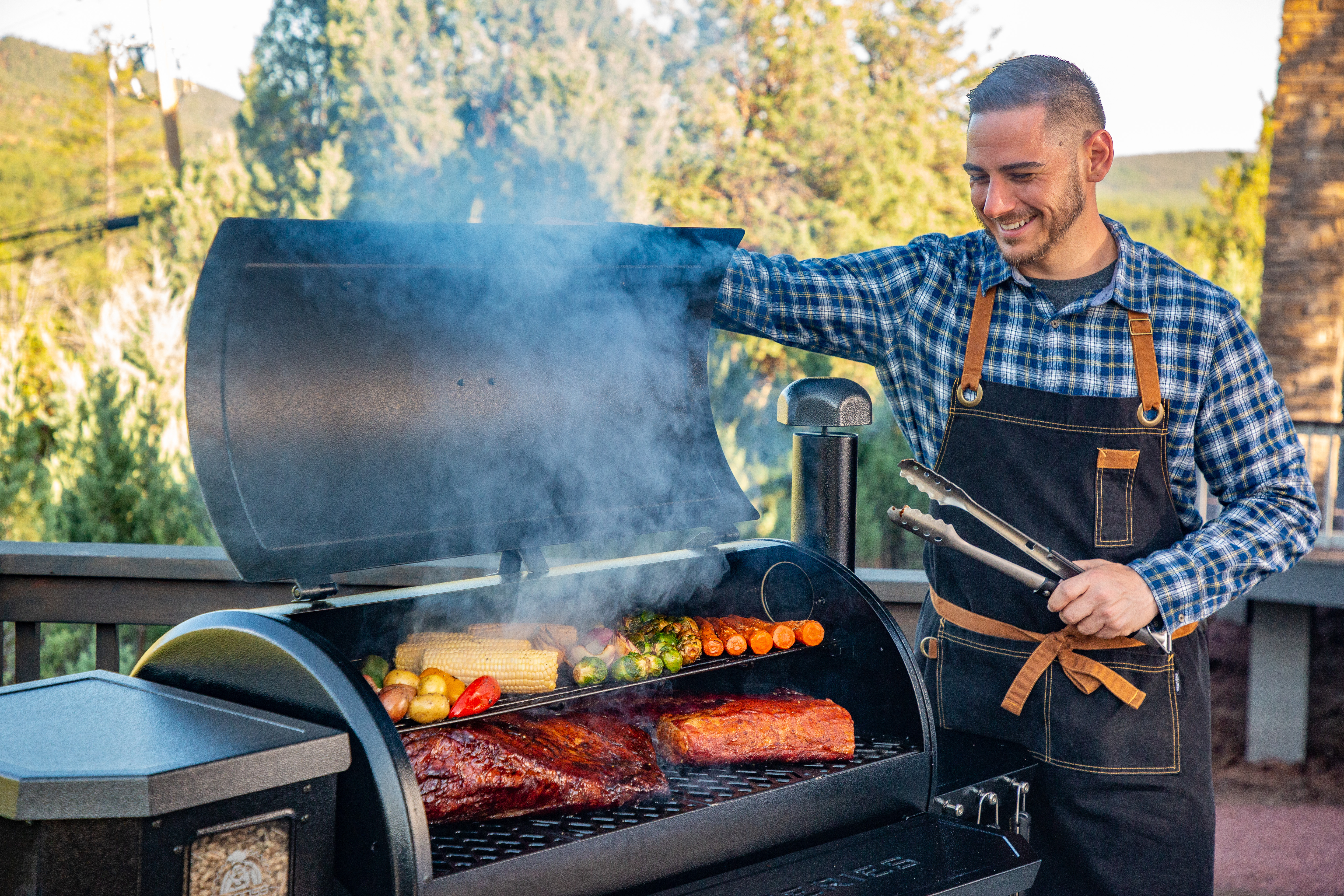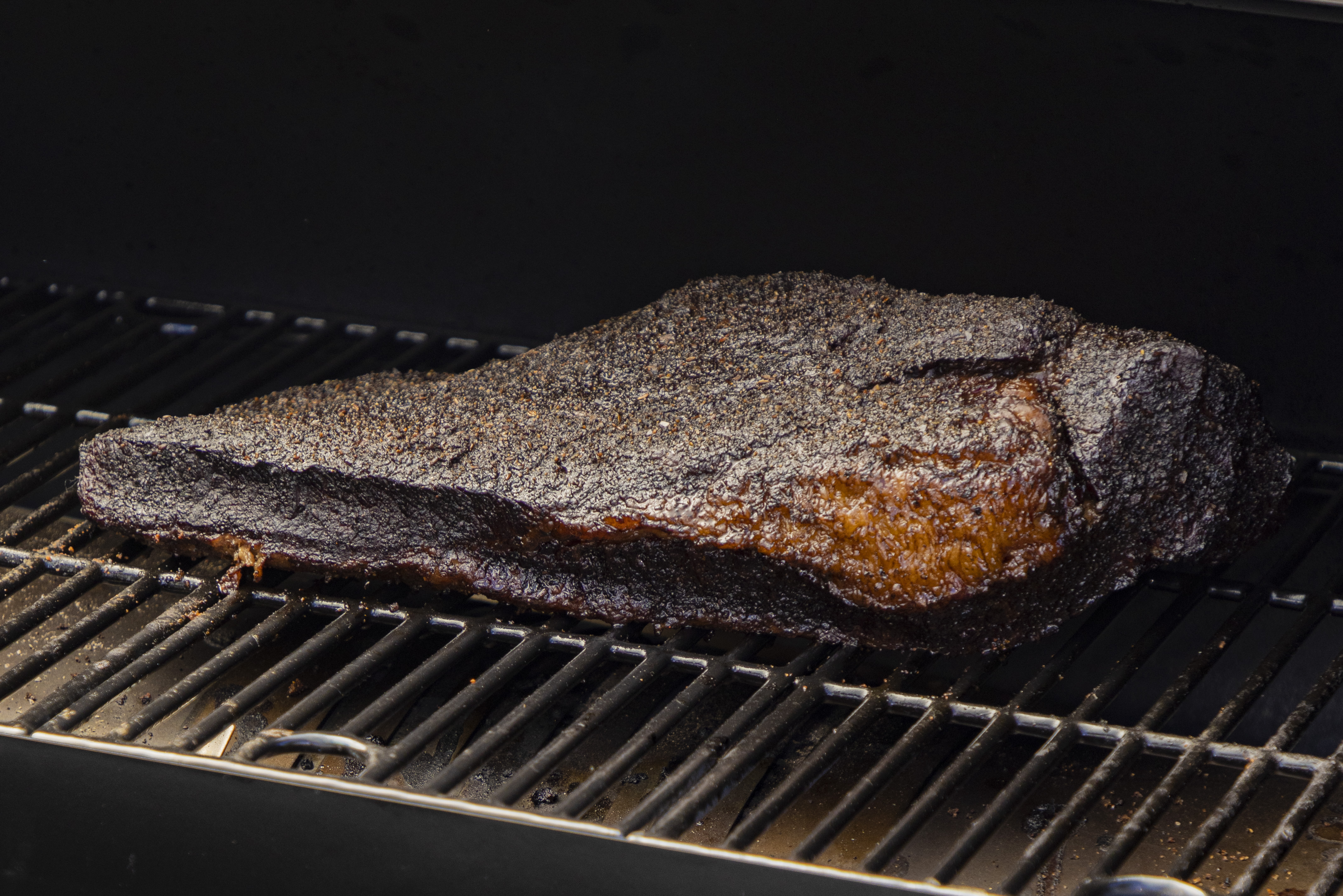
Easy Smoked Brisket
Smoking a big cut of meat like brisket can be intimidating. It’s a lengthy process that requires maintaining a consistent temperature.
However, with a pellet grill, the challenge of reaching and maintaining the right temperature is removed for a much easier process. So, fire up the Pit Boss, and follow along with our guide for achieving world-class brisket right in your own backyard.
How to choose the best brisket
When shopping for a brisket for smoking, never settle for anything less than fresh raw brisket.
It should have good marbling to absorb maximum flavor during seasoning and smoking. Pro tip: select a Prime or Wagyu grade cut.
How to prep your brisket
First you need to trim off any excess fat. This will reveal the brisket’s bright red color, making the cut of meat equally appealing in appearance and taste.
Make sure that the brisket is cold before you start. The soft fat on the brisket becomes a bit like gelatin when it warms up.
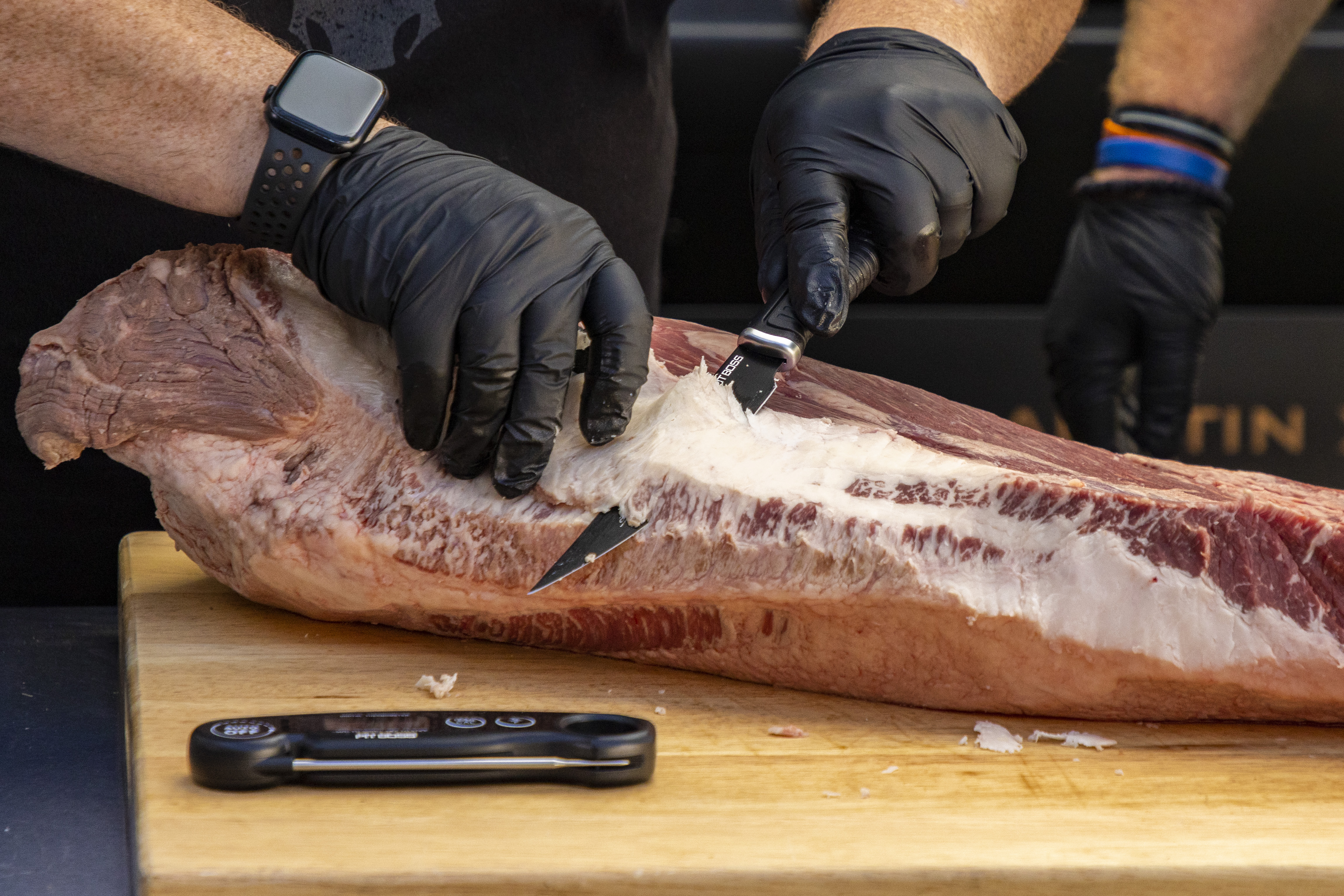
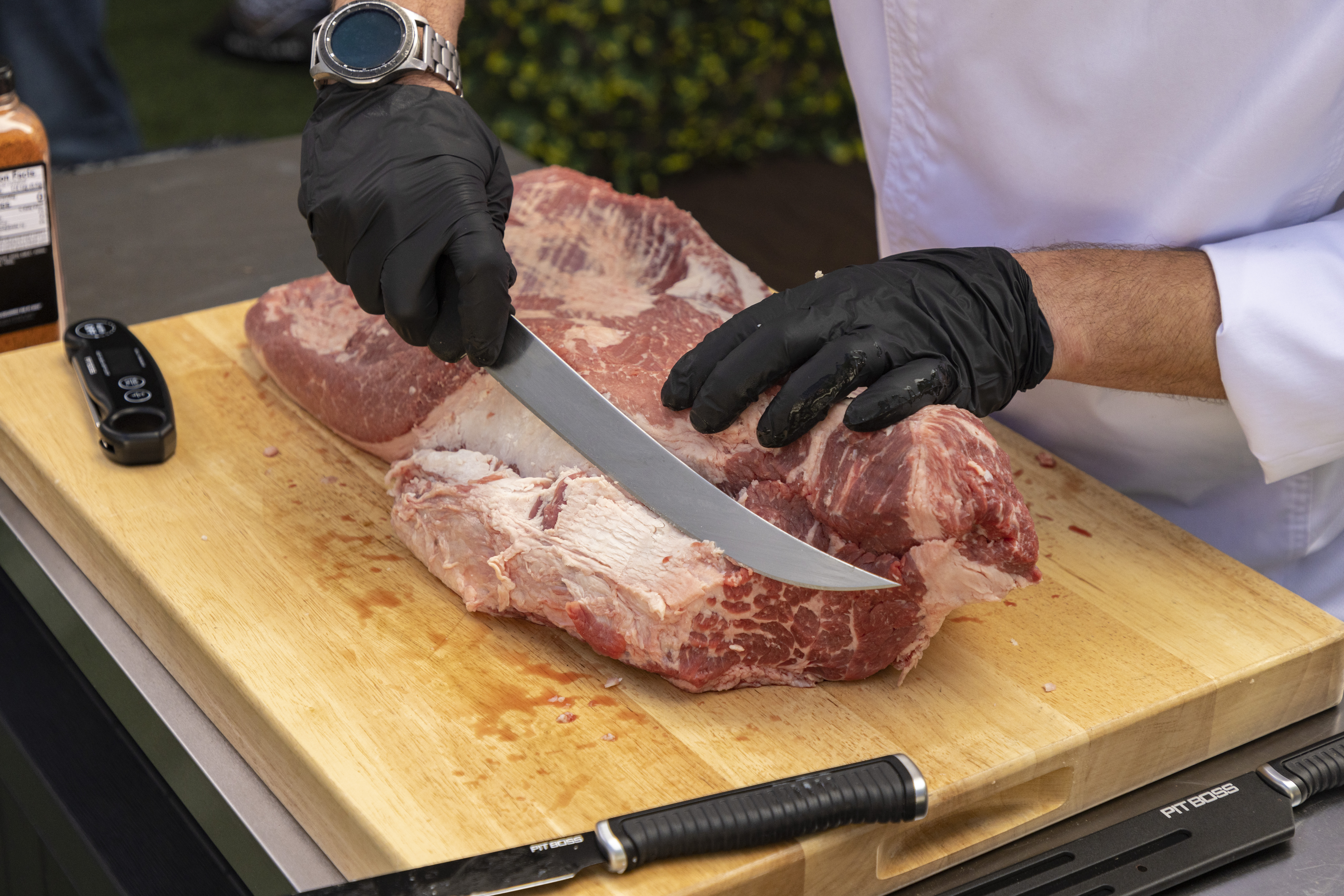
On the side covered with patches of fat, use a sharp knife to trim those areas off and trim any fat edges or seams. Then, round off the corners.
Flip your brisket and trim down the layer of fat covering that side, also called the fat cap.
How to season brisket
Once you’ve trimmed your brisket, you’ll want to season it with a dry rub. This is an important step to enhance the flavor.
You can use a premade rub, like the Pit Boss Lonestar Beef and Brisket Rub or GSP Rub, or simply coat your brisket with a mix of salt, pepper, and garlic powder.
After that, let the seasoned brisket sit in the refrigerator or cooler for at least 2 to 4 hours. That will help the flavoring agents absorb so you get extra flavor on the inside and not just the exterior bark.
Pro Tip: Salt draws moisture from meats, so if you decide to allow your cut to sit rubbed for any prolonged amount of time, wait to add salt until just before you start your cook.
How to smoke a brisket
Now it’s time to get cooking. The temperature for smoking brisket can vary based on personal preference. In the Pit Boss Kitchen, we prefer to cook brisket no hotter than 250°F, but around 225°F is best.
Temperature is key, and it’s important to maintain consistent heat inside the smoking chamber. If you are using an offset smoker, then it might be difficult to gauge the heat generated by wood logs or chips. However, this will not be an issue with a Pit Boss wood pellet grill. The Pit Boss has a digital controller that allows you to preset the cooking temperature. When you fuel up with Pit Boss pellets, reaching and maintaining consistent temperatures is easy. Find out why here.
When it comes to choosing the right wood pellet blend for a low and slow brisket cook, there are lots of options depending on the flavor you’re after.
Try Pit Boss Competition Blend Hardwood Pellets for a medium smoke flavor or Pit Boss Mesquite Blend Hardwood Pellets for an authentic Texas, heavy smoke flavor.
When it’s time to hit the grate, we recommend placing brisket meat side down and fat side up. As the fat starts to melt, the liquid will seep into the brisket throughout the smoking process, keeping it moist and tender.
To wrap or not to wrap?
There’s a lot of debate surrounding a particular step in the brisket smoking process. To wrap or not to wrap? And, if so, what should you use?
If you decide to wrap your brisket during the cooking process, we recommend doing so when your brisket’s internal temperature reaches 140° to 160°F.
Your next decision is key: what do you wrap it in? More specifically, butcher paper or foil?
There are two main benefits of using foil: heat retention and ease of use. Foil traps heat in the meat exceptionally well, speeding up the cooking process. Using foil is also convenient, as just about everyone has a roll of aluminum foil stashed somewhere in their kitchen.
Alternatively, some use butcher paper to wrap their briskets.
Butcher paper is more porous than foil, which allows additional smoke in and some moisture to leak out.
The result is a smokier flavor and a crunchier bark. So, it really comes down to personal preference since a wrapped brisket will have more moisture without crispy bark and an unwrapped one will release more moisture but will keep the bark intact.
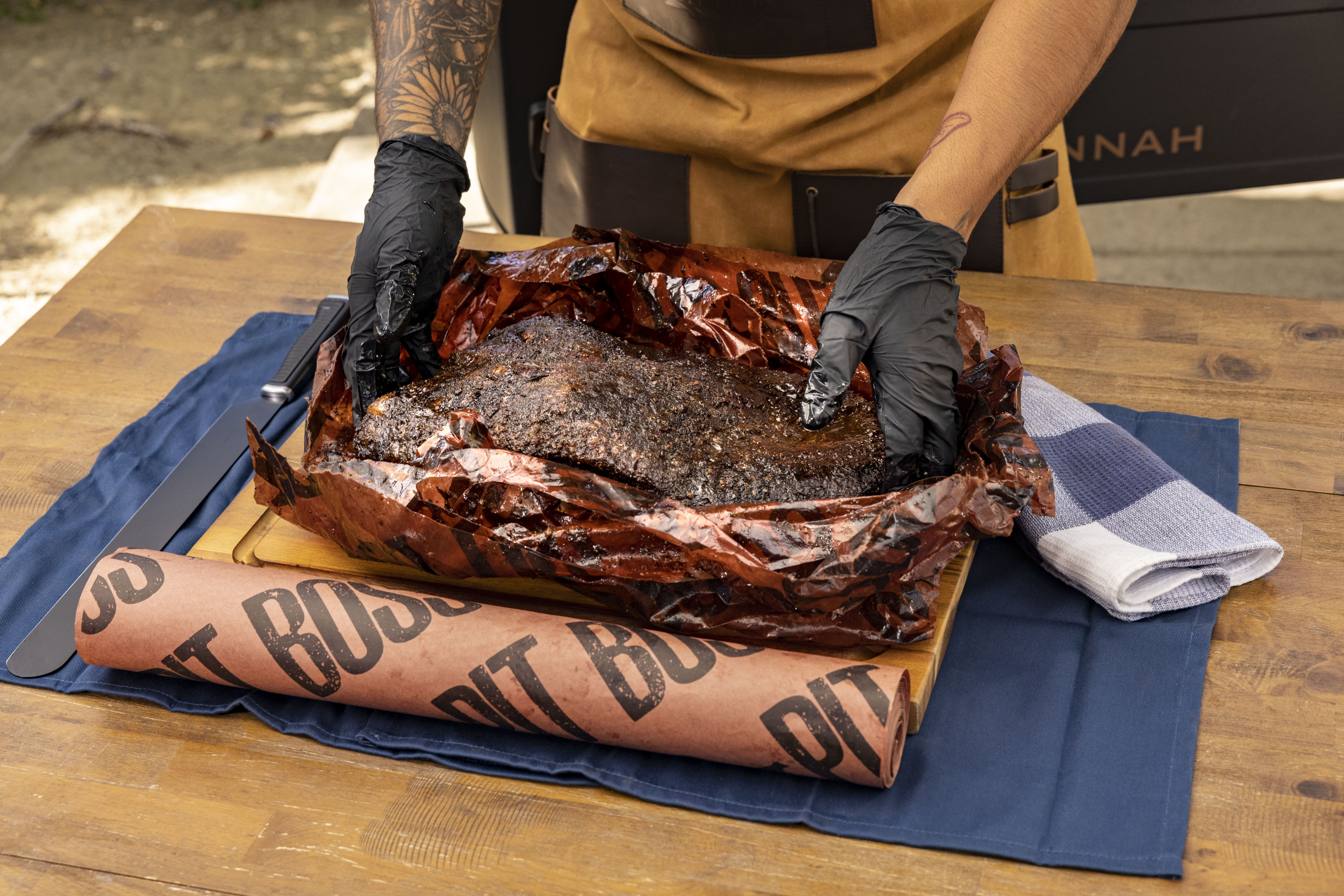
How to tell when my brisket is done
Use a meat thermometer to check if the brisket has reached the desired level of doneness. The best place to check its temperature is in the thicker part where the deckle and the flat meet. The Pit Boss Kitchen recommends pulling brisket off at 190° to 195°F and allow it to rest covered for 2 to 3 hours before carving and serving.
Be sure to let your brisket rest before slicing and serving it. This is one of the most important steps. Elastins that hold meat fibers together start to break down at 165°F and do so more rapidly as temperatures reach 200°F.
Allowing the brisket to rest will stop the cooking process and allow it to retain residual moisture, yielding a juicier brisket.
When you’re ready to serve, start carving it up by cutting your brisket in half to separate the flat from the point. Then, slice your brisket flat against the grain. Turn your brisket point 90 degrees, slice in half, then slice the brisket point against the grain.
Now you’re ready to serve!

